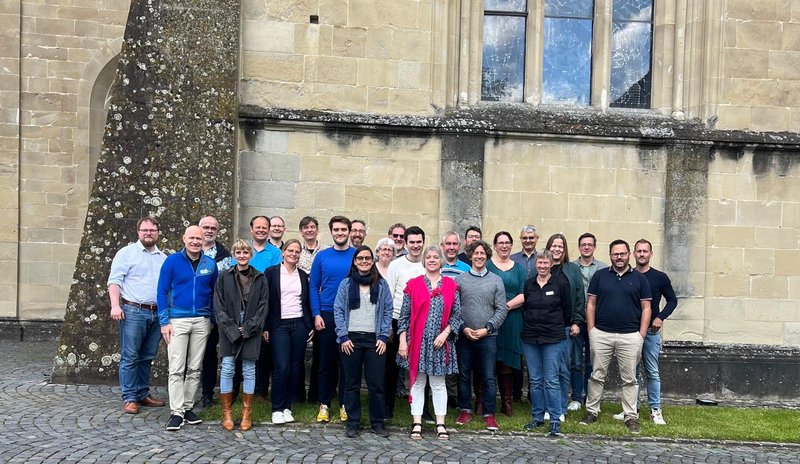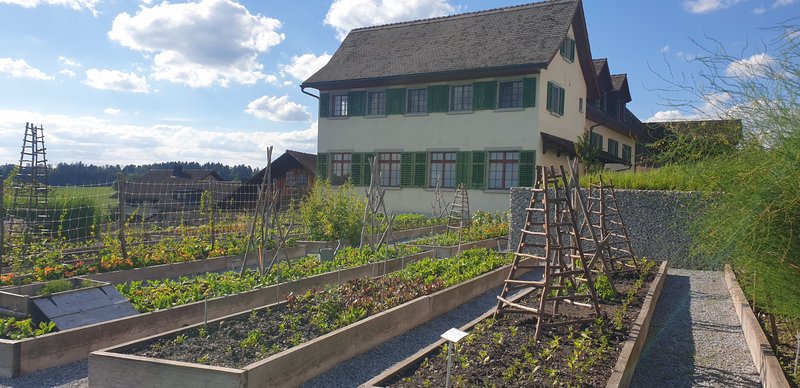European Pioneer Gathering
09 July 2024
09 July 2024
The Evangelism and Growth team is producing a monthly blog series on leadership and culture change. Whether you’re mission planning, starting an NPNP, focusing on one of the commitments of MWOL, or re-orienting your church’s focus to discipleship, we hope these blogs will provide inspiration, encouragement and guidance for making your hopes and dreams a reality.
This month, Rev Matt Finch, Connexional Pioneering and Church Planting Officer, brings his reflections from Kappel am Albis, overlooking Zurich. Leaders from across Europe recently gathered at this 12th century Cistercian monastery (now a Swiss Reformed Church seminary) to share their experience and collective wisdom on pioneering and church planting.
As leaders in the UK, we can be encouraged that our focus on New Places for New People is part of something bigger. The Holy Spirit has started a movement across national, linguistic and cultural borders where Christians from all traditions are beginning new faith communities. Stories were shared at the conference of deeply contextual and missional churches being planted in cafes, hairdressers, community gardens and the digital space. Very similar to our NPNP initiatives. And just like in the UK, the hope and energy of this work sat alongside the challenges of rapid change and decline.
Though no easy answers emerged, there was a sense that the nature of leadership has changed both inside and outside the church. Leadership can no longer depend on the predictable patterns and systems that served stable times. Leaders now need to become flexible and responsive to the unseen. There is a need to be adaptable and confident to shape ministry that can speak to the heart of the communities they serve.
Lots of our European neighbours are putting in extra support for leaders, just like the Connexional Coaching programme offered by the Methodist Church.

Professor Sandra Bils, from the Protestant Church of Germany, reminded us that renewal and change do not happen automatically. A key role of leadership is to intentionally create space for innovation at every level of the church life. She introduced two new words:
For leaders, endineering and exnovation, are not about making cuts at a time of limited resources. They are the way we gratefully let go of that which once served God’s mission so that the new can emerge and bear fruit.
Gathering just a few hundred meters from where the theologian and reformation leader Ulrich Zwingli was killed in a battle during the upheaval of the Swiss Reformation, was a reminder that change can bring conflict. Thankfully, the changes facing the contemporary Church have not come to taking up arms, but the reality is that conflict can sometimes come and can be painful for leaders and congregations.
We all care about the Church, but sometimes have very different ideas about the way forward. There is a challenge for leaders in how we manage these moments.
The Swiss theologian, Sabrina Muller, uses the phrase ‘generous ecclesiology’. This is an ecclesiology that is honest about difference and disagreement in shared pursuit of discovering the future shape of the Church. It seeks to find the ‘us’ not the ‘them and us’. It resists parallel forms of church, creating a people of God where new and established can learn from and celebrate each other’s flourishing.

It is hard to believe that fresh expressions and pioneering has been around in Church vocabulary since 2004. Yet in some ways it still seems novel or an add-on to ‘normal’ church, if there are time and resources to do it. Like the Methodist Church, some European churches are exploring how beginning new ecclesial communities can become second nature or something the church can do easily. There was an acknowledgement that even with the best intentions, when we release funds or resources to pioneers for something new, we call it a ‘project’. This can signal that new forms of church are not normal and are time bound. This can lead to uncertainty in pioneering and endless funding cycles.
There is a need for a new language around this which shows this is what we do and who we are, rather than projects we complete.

At times in the gathering in Switzerland, there was honesty and vulnerability as leaders expressed feelings of being overwhelmed about the enormity of the culture change required. Perhaps this resonates with some of our leaders in the Methodist Church in Britain? A metaphor that became helpful was ‘diffusion’, defined as the movement of something from an area of high concentration to an area of low concentration. Leading change requires strategy and good planning, but it also requires finding porous spaces where the diffusion of ideas and vision can happen. Though the hope is for change everywhere, it begins by starting somewhere. In the thin spaces and places where people can glimpse what God is calling the church to be.
Find out more about Methodist New Places for New People.